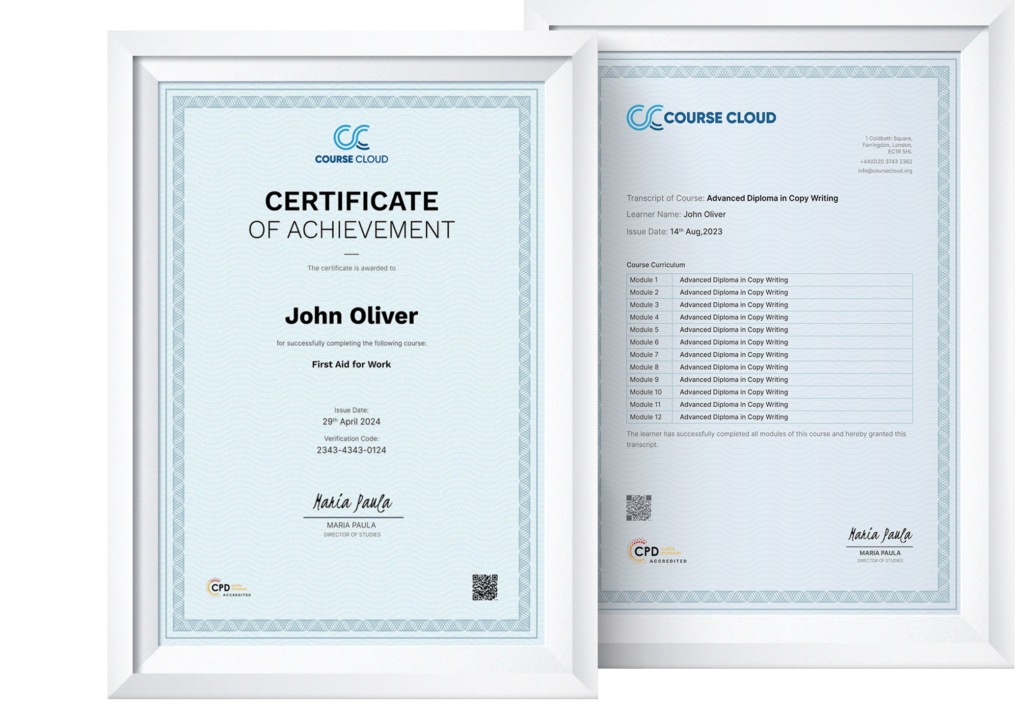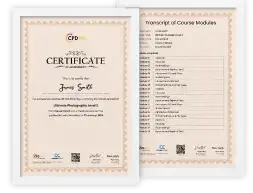Welcome to
Course Cloud
the best place for online learning!
Log In
Sign Up
Don’t have an account yet? Sign Up
Dyslexia Awareness Course
Dyslexia is a learning difficulty that affects millions of individuals worldwide, influencing their ability to read, write, and process information. The Dyslexia Awareness Course provides the knowledge and tools to understand, support, and advocate for individuals with dyslexia.
8 enrolled on this course
( 50% Off Limited Time )

This Course Includes
- 5 Units
- 1 Year Access
- 1 hour, 35 minutes
- Intermediate
- Accredited Certificate






Frequently asked questions
Can’t find the anwser you’re looking for ? Reach out to customer support team.
Dyslexia awareness involves understanding the challenges faced by individuals with dyslexia, promoting inclusivity, and providing resources to support their learning and development. Training programs like the Dyslexia Awareness Course help raise awareness and improve support strategies.
This is a popular myth. While NASA values diverse cognitive strengths, including problem-solving and creative thinking, there’s no verified statistic stating that 50% of its employees are dyslexic.
World Dyslexia Awareness Day in 2024 will likely fall on Thursday, October 3rd, during Dyslexia Awareness Week, which is observed in the first week of October.
Dyslexia and ADHD are distinct conditions but can co-occur. Both affect learning and attention, and individuals may face challenges requiring tailored support for each condition.
No, dyslexia is not a form of autism. Dyslexia is a learning difficulty that primarily affects reading and writing, while autism is a developmental condition that impacts social communication and behavior.
Dyslexia is not directly related to intelligence. People with dyslexia can have average, above-average, or gifted IQ levels, and their cognitive strengths often lie in areas like creativity and problem-solving.
It is widely speculated but not confirmed that Albert Einstein had dyslexia or another learning difficulty, based on anecdotal reports of his early academic struggles and unique cognitive strengths.
Dyslexia has a genetic component and can be passed down through families. It’s caused by differences in how the brain processes language, and it’s not something you are "born with" in the traditional sense but rather influenced by genetic and neurological factors.
Yes, individuals with dyslexia can read, but they may require more time and support, such as specialized instruction and tools like text-to-speech software.
Many individuals with dyslexia have challenges with working memory, particularly when processing language-based information. However, this varies from person to person.
While not "most," many successful CEOs, such as Richard Branson and Charles Schwab, are dyslexic. Their unique problem-solving abilities and determination have often contributed to their success.
Many individuals with dyslexia are strong visual thinkers and excel in spatial reasoning, leading to enhanced 3D visualization skills in fields like design, engineering, and art.
Dyslexic individuals often possess unique strengths, such as creativity, out-of-the-box thinking, and problem-solving abilities, making significant contributions in diverse fields.
Dyslexia can impact math, particularly in areas involving word problems, sequencing, or reading numbers. However, many dyslexic individuals excel in mathematical reasoning and problem-solving.
Dyslexia is not a condition that requires a "cure." With the right support, strategies, and tools, individuals with dyslexia can thrive academically and professionally.


 Get Accredited Certificate
Get Accredited Certificate



 ALL COURSES FOR
£49
ALL COURSES FOR
£49

